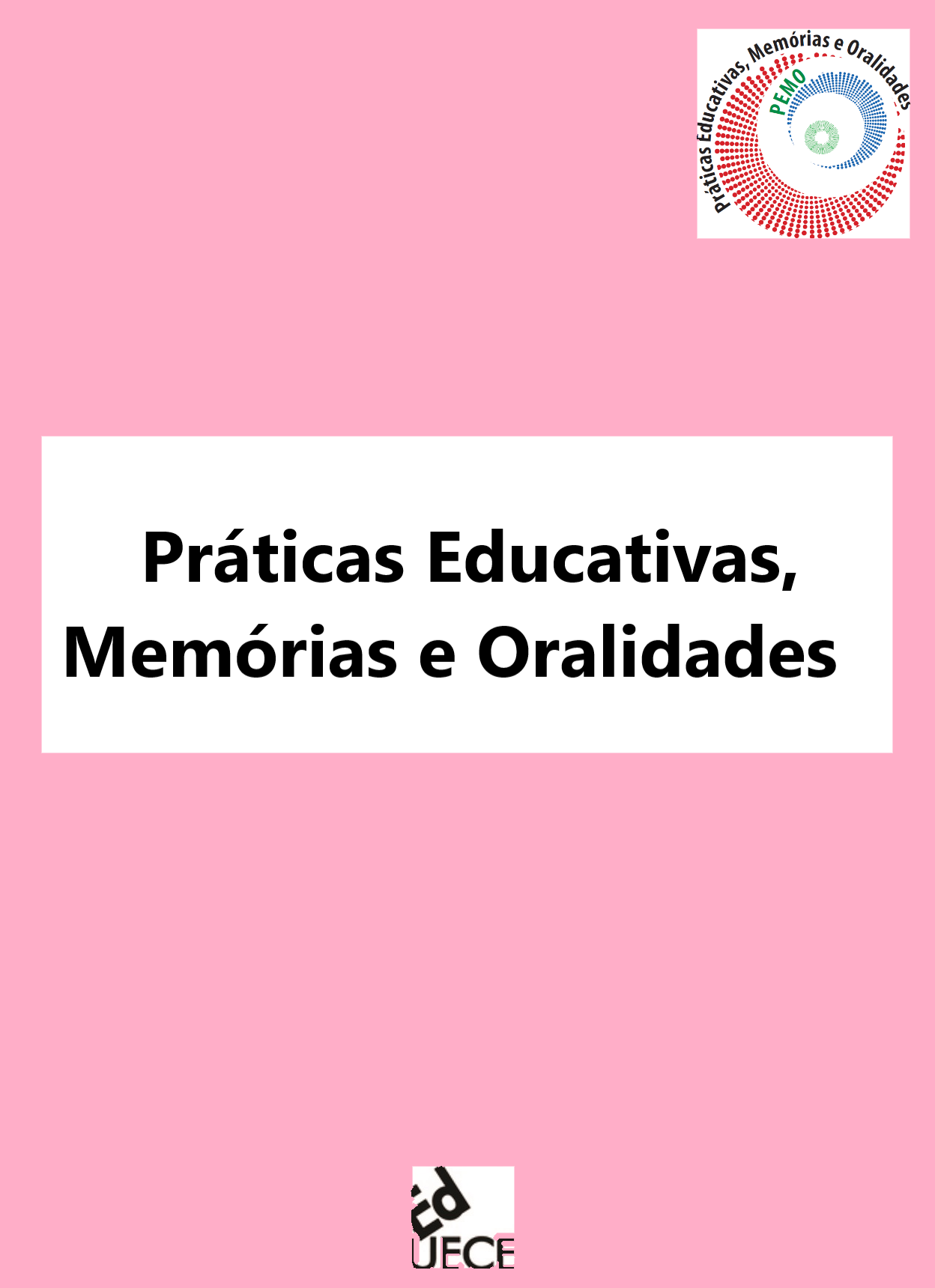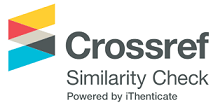Teaching the Thesis genre (TFG) in Civil-Mining Engineering: Resources for Academic Writing in Spanish
DOI:
https://doi.org/10.47149/pemo.v4.e7943Keywords:
Communication competences, Academic writing, Writing in engineering, Academic genres, Undergraduate final report, Genre pedagogyAbstract
The undergraduate final report is a challenge for students in the final year of a studies program because this is a genre that promotes the integration of knowledge and complex disciplinary competencies necessary for a satisfactory professional performance. This applied research presents as objectives: to analyze the TFG genre and to design informed didactic resources to approach the genre. The theoretical framework is based on genre pedagogy, and it followed a qualitative methodology. Results show a type of genre that moves knowledge and abilities on academic writing in different discourse, process, linguistic and normative dimensions that have become a challenge for learning in the discipline. Therefore, a number of didactic resources were designed to face these challenges in the engineering classrooms and, as a consequence, to achieve the confirmation of the knowledge and professional identity creation.
Downloads
References
ARTEMEVA, Natasha. Becoming an engineering communicator: Novices learning engineering genres. In Adair Bonini, Débora Figueiredo y Fábio José Rauen (eds.), Proceedings of the 4th International Symposium on Genre Studies, Tubarão, Brazil, 2007, University of Southern Santa Catarina, pp. 253–265. Disponible en: http://www3.unisul.br/paginas/ ensino/pos/linguagem/cd/index.htm
ÁVILA, Natalia; CORTÉS, Ana María. El género ‘informe de caso’ en la formación inicial docente: una aproximación basada en la actividad. Lenguas Modernas, núm. 50, pp. 153-174, 2017.
ÁVILA, Natalia; NAVARRO, Federico; TAPIA LADINO, Mónica. Identidad, voz y agencia: claves para una enseñanza inclusiva de la escritura de la universidad. Archivos Analíticos de Políticas Educativas, vol. 28, núm. 98, pp. 1-31, 2020. https://doi.org/10.14507/epaa.28.4722
BAWARSHI, Anis; REIFF, Mary Jo. (2010), Genre: An introduction to history, theory, research, and pedagogy. Indiana, Parlor Press and the WAC Clearinghouse, 2010.
BAZERMAN, Charles. Shaping written knowledge. Madison, University of Wisconsin Press, 1988.
BAZERMAN, Charles. Reference guide to writing across the curriculum. Indiana, Parlor Press LLC, 2005.
BEREITER, Carl; SCARDAMALIA, Marlene. The psychology of written communication. Hillsdale, NJ, LEA, 1987.
BERNHARDT, Stephen. Active-practice: Creating productive tension between academia and industry. In Bárbara Mirel y Rachel Spilka (eds.), Reshaping technical communication: New directions and challenges for the 21st century. Mahwah, NJ, Lawrence Erlbaum, pp. 81–90, 2002.
BHATIA, Vijay. Professional discourse: Towards a multidimensional approach and shared practice. In Chris Candlin (ed.), Research and practice in professional discourse. Hong Kong, City University of Hong Kong Press, pp. 39-60, 2002.
CARLINO, Paula. Enseñar a escribir y leer y enseñar con escritura y lectura: iniciativas y debates en torno a las alfabetizaciones académicas. In XII Congreso Latinoamericano para el Desarrollo de la Lectura y la Escritura. IV Foro Iberoamericano de Literacidad y Aprendizaje. Puebla, Benemérita Universidad Autónoma de Puebla, 2013.
CHISTYAKOVA, Galina; BONDAREVA, Evgeniya; DEMIDENKO, Kseniya; PODGORNAYA, Ekaterina; KADNIKOVA, Oksana. Using innovative interactive technologies for forming linguistic competence in global mining education. E3S Web of Conferences, vol. 15, 04010, 2017. Disponible en: https://www.e3s-conferences.org/articles/e3sconf/abs/2017/03/e3sconf_iims2017_04010/e3sconf_iims2017_04010.html
CONRAD, Susan. A comparison of practitioner and student writing in civil engineering. Journal of Engineering Education, vol. 106, núm. 2, pp. 191-217, 2017.
CONRAD, Susan; KITCH, William; SMITH, Tori; LAMB, Kenneth; PFEIFFER Timothy. Faculty-practitioner collaboration for improving civil engineering students’ writing skills. In Proceedings of the 2016 American Society for Engineering Education Annual Conference and Exposition. New Orleans, 2016. Disponible en: https://www.asee.org/public/conferences/64/registration/sessions
COULTER, Beverly; PETELIN, Roslyn; GANNON, Justine; O´BRIEN, Kate; MACDONALD, Corrie. Enhancing technical writing skills for undergraduate engineering students [online]. In Nazmul Huda, David Inglis, Nicholas Tse, Graham Town (eds.), 28th Annual Conference of the Australasian Association for Engineering Education (AAEE 2017). Sydney, Australasian Association for Engineering Education, pp. 160-169, 2017.
DÍAZ, Laura; TORRUCO, Uri; MARTÍNEZ, Mildred; VARELA, Margarita. La entrevista, recurso flexible y dinámico. Investigación en Educación Médica, vol. 7, núm. 2, pp. 162-167, 2013.
DUNSMORE, Katherine; TURNS, Jennifer; YELLIN, Jessica. Looking Toward the Real World: Student Conceptions of Engineering. Journal of Engineering Education, vol. 100, núm. 2, pp. 329–348, 2011.
FERGUSON, Hugh; CHRIMES, Mike. The civil engineers: The story of the institution of civil engineers and the people who made it. London, ICE Publishing, 2011.
FIGUEIREDO, Antonio Dias de. Toward an Epistemology of Engineering. In 2008 Workshop on Philosophy and Engineering. The Royal Academy of Engineering. London, November 10-12, 2008, en: https://ssrn.com/abstract=1314224
FLOWER, Linda; HAYES, John. A cognitive process theory of writing. College Composition and Communication, vol. 32, pp. 365 – 387, 1981.
FREEBODY, Peter. Qualitative research in education: Interaction and practice. London, Sage, 2003.
GASSMAN, Sarah; MAHER, Michelle; TIMMERMAN, Briana. Supporting Students’ Disciplinary Writing in Engineering Education. International Journal of Engineering Education, vol. 29, núm. 5, pp. 1270–1280, 2013.
GEVEHR, D. L., FETTER, S. A.; KARPINSKI, R. L. Produção do conhecimento na universidade: reflexões e incumbências em torno do trabalho de conclusão de curso. Educação & Formação, 4(10), 131-147, 2019.
HARVEY, Ana María. Acerca de la alfabetización académica y sus manifestaciones discursivas. In Martha Shiro, Paola Bentivoglio, Frances Ehrlich (eds.), Haciendo discurso. Homenaje a Adriana Bolívar. Caracas, Universidad Central de Venezuela, pp. 627-645, 2009.
HAYES, John. A new framework for understanding cognition and affect in writing. In Michael Levy y Sarah Ransdell (eds.), The science of writing: Theories, Methods, Individual Differences, and Applications. Mahwah, NJ, Lawrence Erlbaum, vol. 1, pp. 1-27, 1996.
HAYES, John. Modelling and remodelling writing. Written Communication, vol. 29, pp. 369–388, 2012.
HIDALGO, Ximena. Fortalecimiento de cursos capstone en el marco del proceso de acreditación en la escuela de ingeniería de la PUC. In XXIX Congreso Chileno de Educación en Ingeniería SOCHEDI. Pucón, Chile, Universidad de la Frontera, 2016.
KANOKSILAPATHAM, Budsaba. Distinguishing textual features characterizing structural variation in research articles across three engineering sub-discipline corpora. English for Specific Purposes, vol. 37, pp. 74-86, 2015.
KAPLÚN, Mario. Los materiales de autoaprendizaje. Marco para su elaboración, Santiago de Chile. UNESCO, 1995.
KNOBBS, Clive; GRAYSON, Diane. Grayson. An approach to developing independent learning and non-technical skills amongst final year mining engineering students. European Journal of Engineering Education, vol. 37, núm. 3, pp. 307-320, 2012.
LAX, Joanne. Laying a foundation for academic writing in engineering: Helping international graduate students write in English. In 2014 IEEE International Professional Communication Conference. Pittsburgh, IEEE, pp. 1–4, 2014.
LEYDENS, Jon; SCHNEIDER, Jen. Innovations in composition programs that educate engineers: Drivers, opportunities, and challenges. Journal of Engineering Education, vol. 98, núm. 3, pp. 255-271, 2009.
LIEVENS, Jeroen Debunking the ‘nerd’myth: Doing action research with first-year engineering students in the academic writing class. Journal of Academic Writing, vol. 2, núm. 1, pp. 74-84, 2012.
MASONO, Simone; SCOS, Josemaría. Prática pedagógica de professoras alfabetizadoras iniciantes: processos de produção e contribuições para a formação. Revista Educação & Formação, 6(2), 1-21, 2021.
MOTTA-ROTH, Désirée. Escrevendo no contexto: contribuições da LSF para o ensino de redação acadêmica. In Leila Barbara y Tony Berber Sardinha (eds.), Proceedings of the 33rd International Systemic Functional Congress. Sao Paulo, PUCSP, pp. 828-860, 2006.
MOTTA-ROTH, Désirée. The Role of Context in Academic Text Production and Writing Pedagogy. In Charles Bazerman, Adair Bonini y Débora Figuereido (eds), Genre in changing world. Indiana, Parlor Press, pp. 317-351, 2009.
MURILLO, Javier. Evaluaciones externas y calidad de la educación. Eskola Publikoa, vol. 41, pp. 20-23, 2008.
NARVÁEZ-CARDONA, Elizabeth. Latin-American Writing Initiatives in Engineering from Spanish-speaking Countries. Ilha do Desterro, vol. 69, núm. 3, pp. 223-248, 2016.
NATALE, Lucía; STAGNARO, Daniela Stagnaro. Alfabetización profesional durante la carrera universitaria: entre la universidad y la empresa. Itinerarios educativos, vol. 7, núm. 7, pp. 11-28, 2015.
NAVARRO, Federico. Géneros discursivos e ingreso a las culturas disciplinares. Aportes para una didáctica de la lectura y escritura en educación superior. In Federico Navarro (ed.), Manual de escritura para carreras de humanidades. Buenos Aires, Editorial de la Facultad de Filosofía y Letras de la Universidad de Buenos Aires, pp. 29-52, 2014.
NAVARRO, Federico; ÁVILA, Natalia; TAPIA.LADINO, Mónica; CRISTOVÄO, Vera; MORITZ, María Moritz; NARVÁEZ-CARDONA, Elizabeth; BAZERMAN, Charles Bazerman. Panorama histórico y contrastivo de los estudios sobre lectura y escritura en educación superior publicados en América Latina. Revista Signos, vol. 49, pp. 78-99, 2016.
NEBEKER, Frederik. Golden accomplishments in BE. Piscataway, NJ, IEEE History Center., 2002.
PALTRIDGE, Brien; STARTFIELD, Sue. Change and continuity in thesis and dissertation writing: The evolution of an academic genre. Journal of English for Academic Purposes, 48, 1-16, 2020.
PARODI, Giovanni. The rhetorical organization of the textbook genre across disciplines: A ‘colony-in-loops’? Discourse Studies, vol. 12, núm. 2, pp. 195-222, 2010.
PIIRTO, John. Speech: an enhancement to (technical) writing. Journal of Engineering Education, vol. 89, núm. 1, pp. 21-23, 2000.
POE, Mya; LERNER, Neal; CRAIG, Jennifer Craig. Learning to Communicate in Science and Engineering: Case Studies from MIT. Cambridge, MIT, 2010.
REAVE, Laura. Technical Communication Instruction in Engineering Schools: A Survey of Top-Ranked US and Canadian Programs. Journal of Business and Technical Communication, vol. 18, núm. 4, pp. 452-490, 2004.
REY, Rocío; BARBOSA, Jorge; GÓMEZ, Gilberto. Evaluación de materiales escritos de autoaprendizaje para educación a distancia. RIED. Revista Iberoamericana de Educación a Distancia, vol. 6, núm. 2, pp. 56-75, 2003.
STAGNARO, Daniela; NATALE, Lucía. Géneros y formación ingenieril: de la universidad a la industria. Magis, Revista Internacional de Investigación en Educación, vol. 8, núm. 16, pp. 91-108, 2015.
SWALES, John. Genre Analysis. English in academic and research settings, Cambridge. Cambridge University Press, 1990.
SWALES, John. Research Genres: Explorations and applications. Cambridge, Cambridge University Press, 2004.
UNIVERSIDAD DE CHILE (UCHILE). Política de Equidad e Inclusión, 2014. Disponible en: https://www.uchile.cl/portal/presentacion/senado-universitario/documentos/161329/politica-de-equidad-e-inclusion-estudiantil
UNIVERSIDAD DE CHILE (UCHILE). Modelo educativo de la Universidad de Chile. Departamento de pregrado. Vicerrectoría de Asuntos Académicos Universidad de Chile, 2018. Disponible en: http://www.libros. uchile.cl/717
UNIVERSIDAD DE CHILE (UCHILE) (2021). Perfil de egreso Ingeniería de Minas. Facultad de ciencias Físicas y Matemáticas, 2021. Disponible en: http://www.minas.uchile.cl/pregrado/perfil-de-egreso
VENEGAS, René; NUÑEZ, María; ZAMORA, Sofía; SANTANA, Andrea. Escribir desde la pedagogía del género. Guías para escribir el trabajo final de grado en licenciatura. Valparaíso, Ediciones Universitarias de Valparaíso, 2015.
WARD, Jeremy. A basic engineering English word list for less proficient foundation engineering undergraduates. English for Specific Purposes, vol. 28, núm. 3, pp. 170-182, 2009.
Published
How to Cite
Issue
Section
License
Copyright (c) 2022 Enrique Sologuren Insúa, Carmen Gloria Núñez, Nelson Becerra

This work is licensed under a Creative Commons Attribution 4.0 International License.













